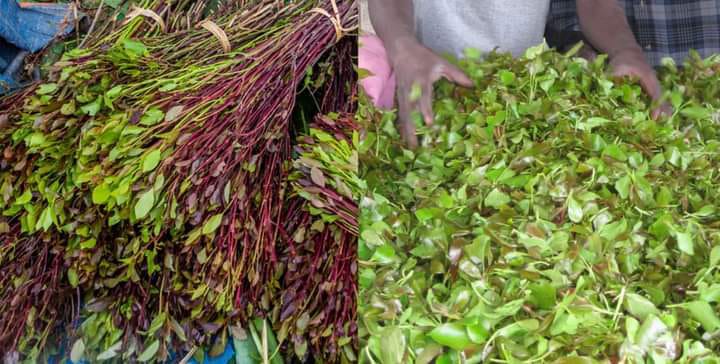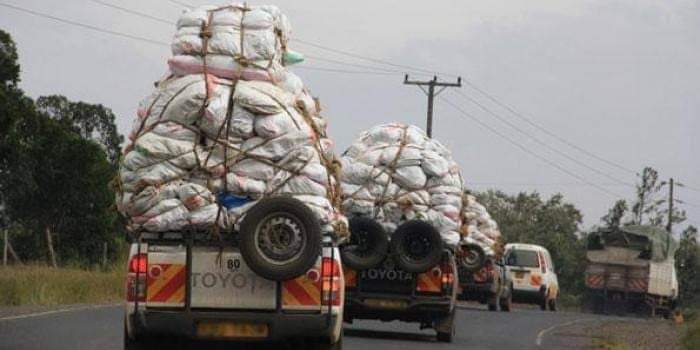Restless miraa farmers call out on sluggish Kawira as coast leaders threaten to ban crop

By Harun Mugambi
A recent move by Mombasa Governor Abdulswamad Nassir to ban the sale of Miraa and Muguka near places of worship and Schools in the region has sparked a heated debate among lawmakers and residents of Meru and Embu counties.
The ban, which was announced on May 11, 2024, has been met with strong opposition from Meru residents, who are major producers of these cash crops.
The lawmakers from Mombasa County are opposed to the sale of miraa and muguka in the region arguing that these crops are drugs and ruin the lives of the county residents.
Embu Governor Cecily Mbarire, along with several county assembly members, on Wednesday 15 held discussions with their Mombasa counterparts regarding the increased tax on Muguka.
This meeting occurred amid concerns from religious leaders in the coastal city, who assert that the crop poses a threat to their youth.

Meanwhile, Meru residents are urging Governor Kawira Mwangaza to follow suit to end the uncertainties that befall farmers who rely on the crop.
Miraa and Muguka have been under scrutiny due to their stimulant properties. The Mombasa ban is seen as a significant blow to the farmers, who are already grappling with dwindling prices and shrinking markets.
The Mombasa lawmakers’ demand for a total ban on miraa and Muguka has set the stage for a clash with their Meru counterparts.
Meru Senator Kathuri Murungi has previously stated that the region fully depends on Miraa, calling on government intervention in finding new markets for the crop.
“I have already talked to the Embu governor and asked her when she will be going to Mombasa to call me so that we can present our petitions to the governor and deliberate on the issue,” Kathuri earlier Stated.
“They ought to come up with regulations to control the sale of Mirra not ban or hiking of the taxes associated with the crop,” he added. He however wasn’t among the delegation that accompanied Governor Mbarire to Mombasa.
The debate over the ban has also highlighted the need for a broader discussion on drug addiction in the country with a faction of lawmakers arguing that dealing with the issue of drug addiction requires addressing the role of crops such as Miraa and Muguka.
Meru leaders have however maintained that Miraa is a cash crop.
On Wednesday 15, Miraa politics dominated the national budget public participation meeting in Maua, where Meru leaders criticized efforts to ban the crop in their counties.
Igembe South MP John Paul Mwirigi announced plans to meet with the Mombasa Governor to hold a detailed discussion on the issue surrounding the coastal market.
“I recall that miraa was legalized as a crop in 2016. We will mobilize Meru leaders to meet with Mombasa’s leadership to discuss this issue.” The legislator emphasized.
His sentiments were echoed by his Igembe Central counterpart Daniel Kiili who said, “No county has the authority to ban a legally recognized crop within Kenya’s borders.”
Speaking in the same forum North Imenti MP Rahim Dawood emphasized the need for collaborated efforts in addressing the miraa issue.
“We need to secure funds to find new markets, but the leaders in Meru must be united like those in Embu,” Rahim said.
Meru Deputy Governor Mutuma Ethingia expressed his will to have Miraa’s issue solved amicably.
“Miraa is the backbone of our society. The actions taken by leaders in Mombasa and Kilifi to undermine this essential cash crop will significantly impact our community if we do not act swiftly. I will join other like-minded leaders on a trip to Mombasa to seek a long-lasting solution with the Coast leaders to protect our valuable crop,” said the DG.
Akirang’ondu MCA Morris Ntarangwi , Tuesday 14th, mobilized KK residents to demand Governor Mwangaza’s intervention.
“I urge our governor to discuss the miraa issues with her Mombasa counterpart as the crop is a vital to our people. Many parents rely on selling Miraa to pay for their children’s school fees,” Ntarangwi reiterated.
As the controversy continues to unfold, it remains to be seen how the different stakeholders will navigate the complex issues surrounding the cultivation and sale of Miraa and Muguka.

